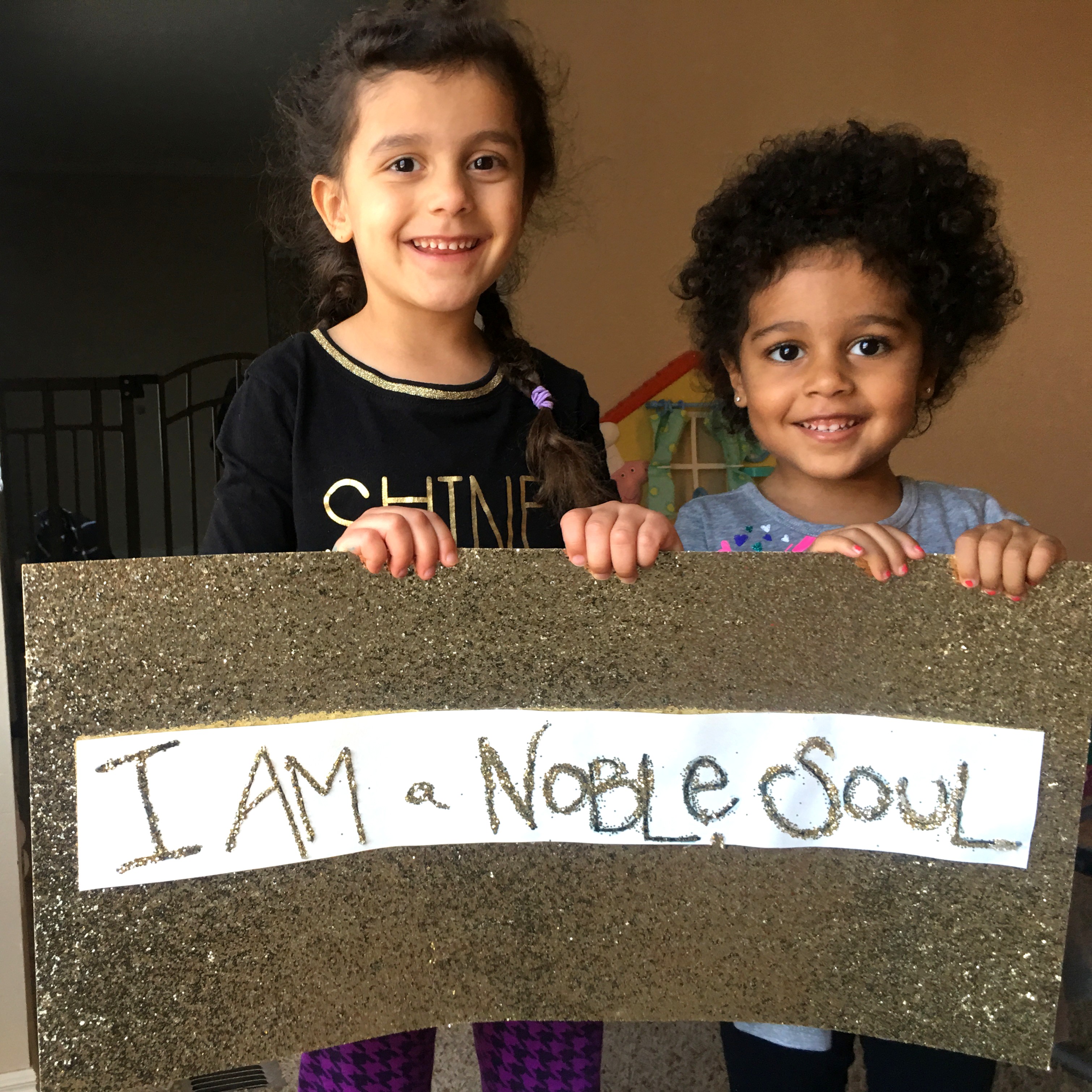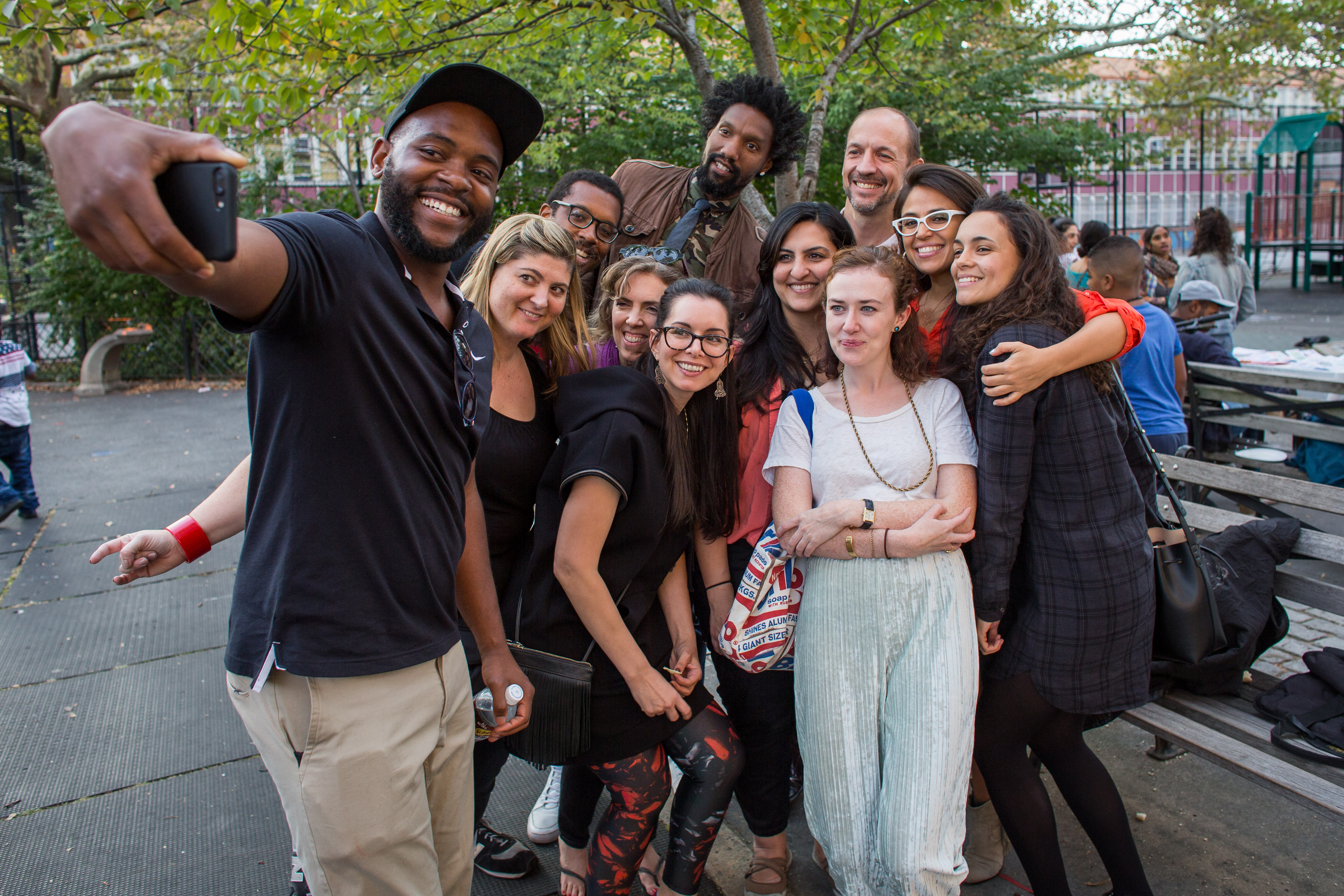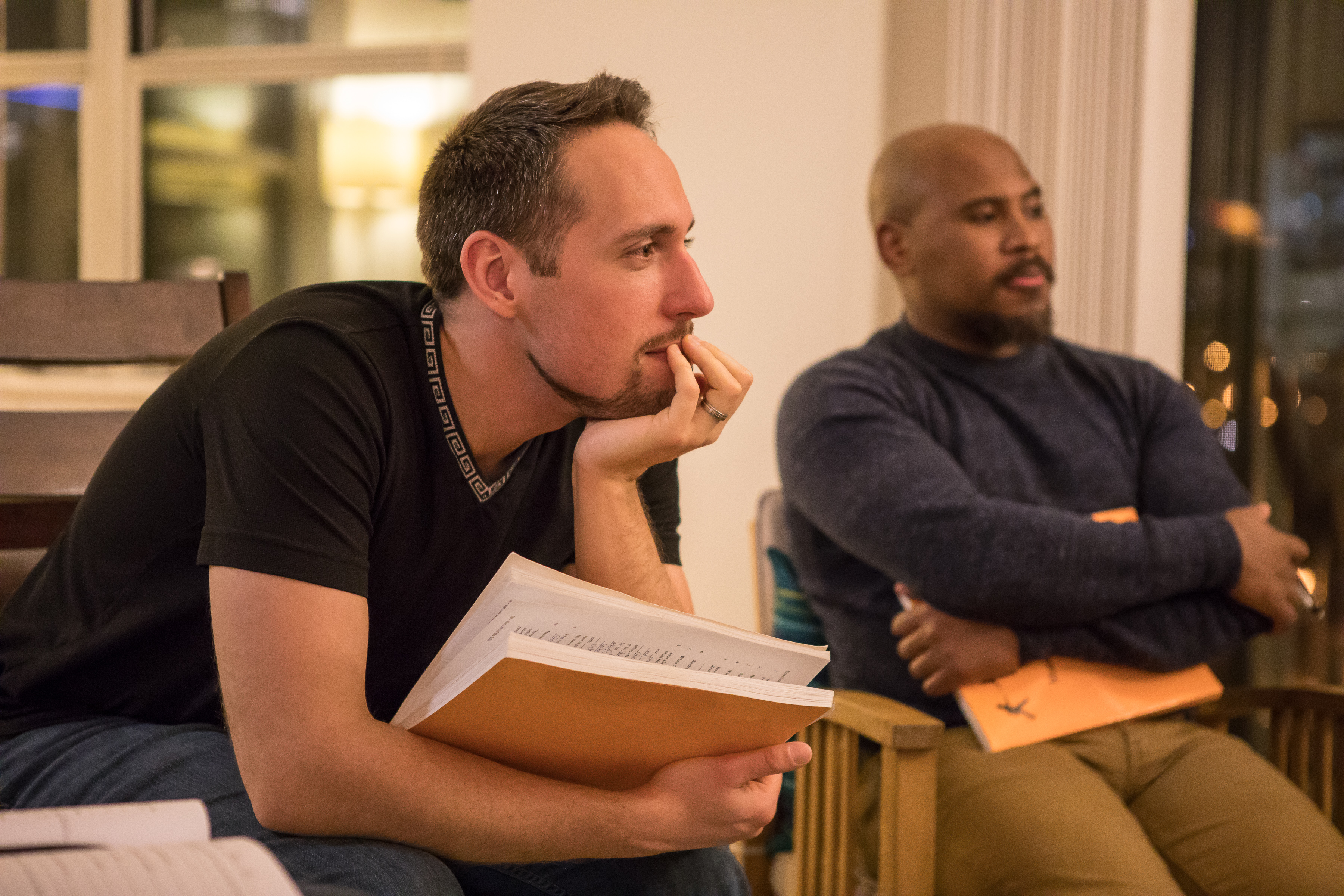American society is passing through trying times and struggling to find common ground around a shared sense of values and vision for the future. As divisions widen, long-standing tensions, bigotry and prejudices rise to the surface.
The spiritual roots of these conditions—materialism, moral decay and racial prejudice—are the focus of a letter written by the elected national governing body of the Baha’is of the United States in February 2017.
In the letter, the National Spiritual Assembly asserts its belief in “the fundamental goodness and decency of the masses of our fellow-citizens,” who “desire genuine justice and prosperity for everyone.” The letter urges us all to work together in our neighborhoods to develop spiritually-based patterns of community life, and to engage with each other in enriching public discourse and collective social action.
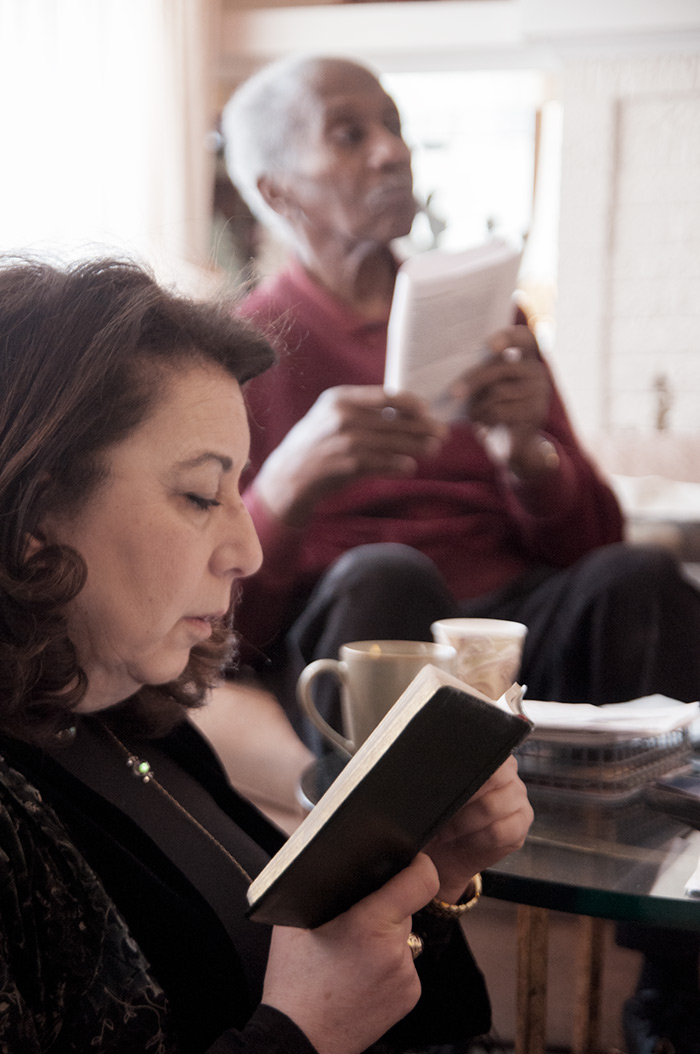
Spiritual Roots of America’s Current Trials
At this pivotal juncture in our nation’s history, our foremost responsibility is to everywhere affirm―in the Name of Baha’u’llah―the truth of the oneness of humanity in a manner that will have an impact for decades to come. We must accelerate our efforts to remove the stains of prejudice and injustice from the fabric of our society. As you take up this call with courage and zeal, we ask that you keep the following concepts in mind.
“Heaven will support you while you work in this ingathering of the scattered peoples of the world beneath the shadow of the almighty tent of unity. You will be servants of God, who are dwelling near to Him, His divine helpers in the service, ministering to all Humanity. All Humanity! Every human being! Never forget this!”
-Abdu’l-Baha
The tensions, divisions, and injustices that currently beset America are symptoms of a longstanding illness. The nation is afflicted with a deep spiritual disorder, manifest in rampant materialism, widespread moral decay, and a deeply ingrained racial prejudice. As a result, millions of our fellow Americans, subject to systemic injustices in many facets of life, are prevented from making their full contributions to society and of partaking fully in its benefits. No one is immune to this disorder―we are all members of this society and to some degree suffer the effects of its maladies. That we live in a critical time can be seen in the way essential questions of identity, social vision, and global relations are being raised to a degree not seen in decades. Increasing numbers of our fellow-citizens are actively in search of solutions both moral and practical to answer them.
The resolution to these challenges lies in recognizing and embracing the truth at the heart of Baha’u’llah’s Revelation―the incontrovertible truth that humanity is one. Ignorance of this truth―which embodies the very spirit of the Age―is itself a form of oppression. Without truth it is impossible to build a just and peaceful world.
FURTHER READING
Reshaping Society Based on the Oneness of Humanity
The oneness of humanity is far more than a slogan or an abstract and unattainable ideal. It has profound implications for both personal behavior and for the way society is organized―challenging many current assumptions and revolutionizing our conceptions of the relationships that should exist between the individual, society, and its institutions.
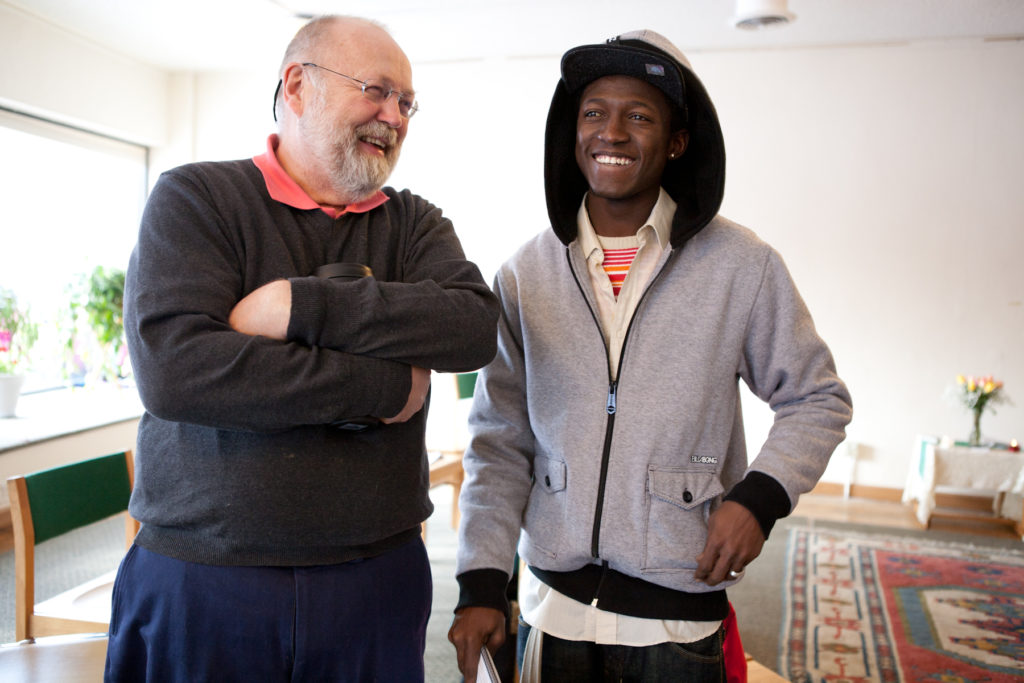
Awareness of the spiritual reality of human beings carries with it the moral requirement that all be given every opportunity to fulfill their potential and to contribute to the advancement of civilization. To this end, we have a twofold mission: to develop within our own community a pattern of life that increasingly reflects the spirit of the Baha’i teachings, and to engage with others in a deliberate and collaborative effort to eradicate the ills afflicting our nation.
The teachings of the Baha’i Faith instruct us to work to reshape society based on principles of love, inclusiveness, and reciprocity. This requires that our means be consistent with our ends―that is, by transcending current approaches that tend to divide people into contending groups, raising consciousness in such a way as to bring them together in the earnest and honest search for solutions. The language we use and the attitudes we take, while not ignoring the harsh realities that exist in the world, should appeal to the nobler aspirations of our fellow citizens. They should reflect assurance that the vast majority of us sincerely desire justice, and must be unifying rather than divisive.
Read a selection of writings from Bahá’u’lláh
Known as the Hidden Words, this book consists of brief passages which Baha’u’llah described as the “inner essence” of all religious teachings.
FURTHER READING

A Many-Faceted Approach to Transforming Society
We have inherited a priceless legacy of service spanning more than a century, originally set in motion by ‘Abdu’l-Baha Himself. In the past two decades especially, we have obtained important insights into how our combined and various efforts make for a coherent force for progress.
The more we understand the framework of action given to us in the current Five Year Plan, the better we can appreciate that it is precisely suited to the needs of the time. We are rapidly gaining the ability to engage ever-greater numbers of individuals in the work of community building who, through a sustained and meaningful process of personal and social transformation, can join together in creating effective and lasting change. The process fosters the intellectual and spiritual capacities necessary to the complex and challenging task of creating a society founded on divine principles. Surely such a convergence of capacity and opportunity is nothing less than providential.
The task of transforming an entire society will require a many-faceted approach through which a pattern of life can emerge demonstrating the rich possibilities inherent in walking the spiritual path of love and service. The Universal House of Justice, without attempting to strictly define them, has stated that these possibilities can be considered as falling into the three broad categories of expansion and consolidation, social action, and engagement in the discourses of society.
They emerge organically and coherently as a community rises from one level of advancement to the next. Experience has shown how, from the humblest beginnings, a pattern of community life that includes all three dimensions can develop. All three can be seen as mutually reinforcing elements of one process―a process that must be accelerated, for it will generate the consciousness necessary to apply in both word and deed the teachings of Baha’u’llah to the challenges we face, not least of them the challenge of race relations. As it gains momentum, it will embrace vast numbers of people empowered to take charge of their own social and spiritual development and contribute their full share to a new way of life.
Community Building, the Foundation for Social Change
The activities at the core of our community life are the foundation for great social change. Simple as they might appear, they are, in reality, profound and revolutionary. This becomes clear as we observe systematically applied in action some of the capacities we are building through insights derived from Baha’u’llah’s Revelation.
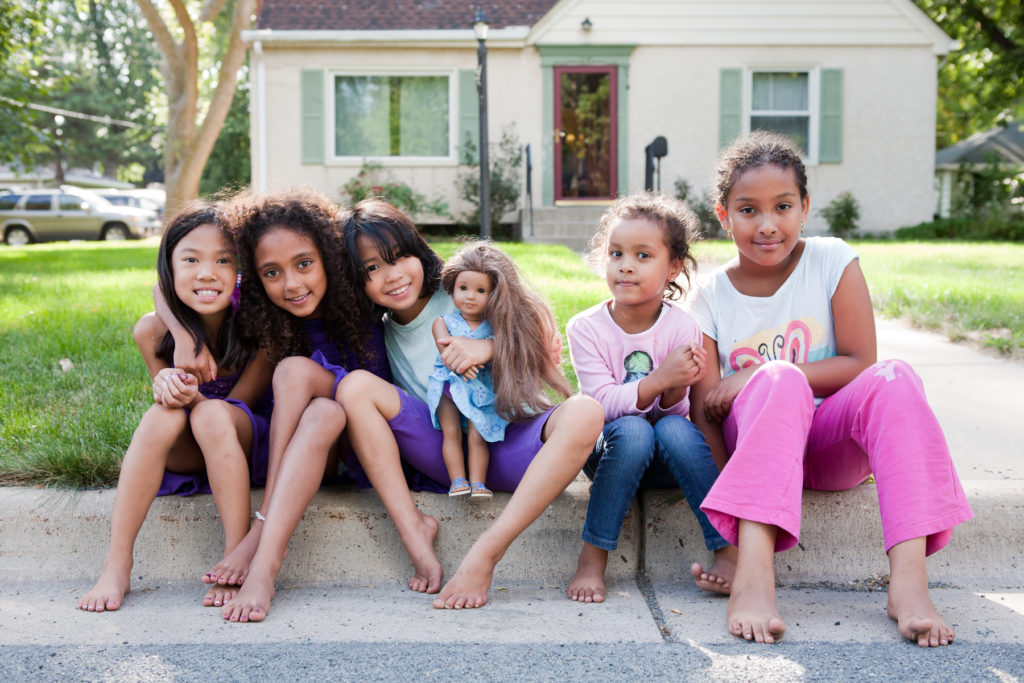
Among them is the ability to engage in distinctive conversations of a spiritual character. We learn to converse with others about the fundamental purpose of life, the relationship of the soul with its Creator, and the implications of Baha’u’llah’s advent and His teachings for our spiritual and social progress. We learn to create an atmosphere of reverence and devotion to God in the community, to foster a spirit of friendship and intimacy that transcends the barriers of race and class, to provide spiritual and moral education for young people, to share the lives and teachings of the Central Figures of the Faith with confidence and with sensitivity to varying situations. We also learn to walk with others on the spiritual path, in a humble posture of learning, engaging in individual and collective service for the betterment of the world. These are but a few of many examples. All these activities must increase and grow to embrace multitudes of individuals. In an ever-enlarging number of neighborhoods, for example, we will learn how best and most effectively to work among diverse
populations and about the practical dimensions of interracial fellowship. Such activity―and the genuine friendships that result― will help to weaken and eventually uproot prejudice-tainted notions underlying our present social order, and can begin to undo racism in our society.
Social Action, Discourse and a Spirit of Learning
In the realm of social action, it is possible to observe the range of projects and activities that emerge organically from our community-building work and highlight those which tackle, directly or indirectly, situations with a bearing on race relations. We anticipate the emergence of more such activities as we gain in experience and capacity, and as more people become empowered to serve. In the area of discourse, we can explore and develop a conversation with the wider society which, when added to the range of conversations already cultivated by the institute process, can assist our fellow citizens to abandon the language and practices in society that have resulted in an intractable divide, unite on the basis of commonly held ideals and principles, and work together for a social order free of prejudice and characterized by unity in diversity. Such conversations will naturally come about as we pursue the work of community building at the level of neighborhoods, as well as through a diverse array of personal contacts. We can also appreciate activities of the kind in which a host of individual Baha’is are engaged―whether with like-minded organizations or in their professions―encouraging more Baha’is to similarly take advantage of opportunities in the wider community. At every level, we have much to learn from others who are striving for the same goals and with whom we can join hands in this vital and foundational work. And, through our Office of Public Affairs, we are advancing this institution’s involvement in the national discourse on race―drawing on insights from the various experiences of the friends and from our own previous efforts to offer a Baha’i perspective. A process is already underway leading to a national race unity conference under the sponsorship of this Assembly, details of which will be announced in due course.
A key component of our approach is the spirit of learning. This begins with the realization that successfully giving form to the divine principles given to us by Baha’u’llah will require persistent effort over time. We will progress as we build on strengths that emerge through experience. If we study carefully the ways various communities are active in each one of the three broad areas of expansion and consolidation, social action, and engagement in the discourses of society, we can identify new insights and bring them to the attention of others so they can be established in more and more places. As we move forward, we will come to an increasingly profound appreciation of the rich potential inherent in this approach.
Unity and effectiveness in our work will evolve to the extent that we see our efforts as complementary and mutually enriching. By advancing energetically in all areas, we will apply our systematic approach to learning to such effect that one can envision how, in the decades ahead, Baha’is will contribute in an ever more effective way to the eventual eradication of racism in our country.
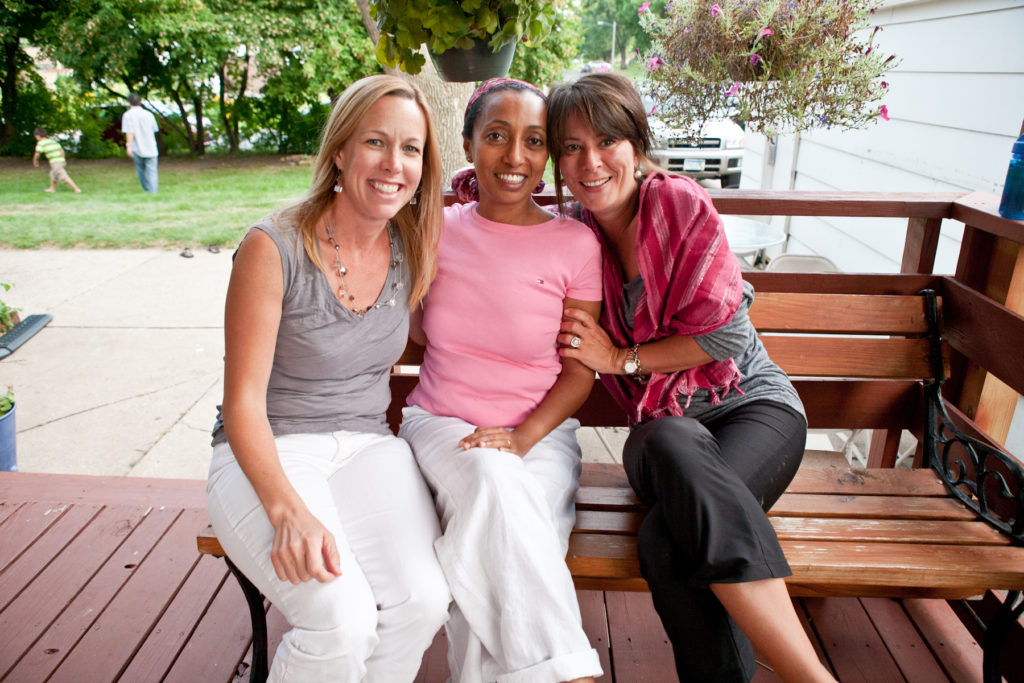
Creating A Haven for a Suffering and Bewildered Humanity
We take as inspiration for our service the example of ‘Abdu’l-Baha during His visit to America more than a century ago. In clear and uncompromising terms, in private meetings and public assemblies, He raised the call of the oneness of humanity.
He demonstrated fully, courageously, and consistently, whether openly in large gatherings or in the smallest personal acts, the implications of that spiritual truth, and challenged others to do the same. While acknowledging its marvelous material achievements and aspirations, He unhesitatingly warned of dire consequences to American society and to the cause of world peace if her peoples failed to live up to the truth of the oneness of humanity―especially in the relations between black and white. Above all, He stressed the central and unique role ordained for the American nation in the establishment of that universal peace anticipated by all the Prophets of past ages.
We are confident that Americans yearn as we do for spirituality, that they desire genuine justice and prosperity for everyone. We are assured that America’s role on the world stage, however significant it has so far been, will in the future be more distinguished and praiseworthy, not because of any inherent superiority it now possesses but to the degree that its present gloom is dispelled by the Light of Baha’u’llah’s Revelation. Surely we can, with God’s assistance, and together with our sisters and brothers throughout the land, bear whatever pain and difficulties will be necessary to create a haven for a suffering and bewildered humanity.
“Bend your minds and wills to the education of the peoples and kindreds of the earth, that haply the dissensions that divide it may, through the power of the Most Great Name, be blotted out from its face, and all mankind become the upholders of one Order, and the inhabitants of one City. Illumine and hallow your hearts; let them not be profaned by the thorns of hate or the thistles of malice. Ye dwell in one world, and have been created through the operation of one Will. Blessed is he who mingleth with all men in a spirit of utmost kindliness and love.”


